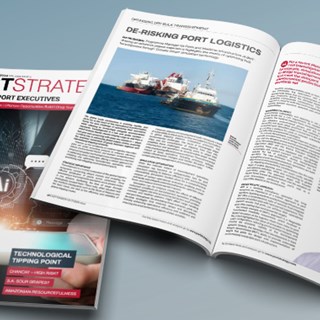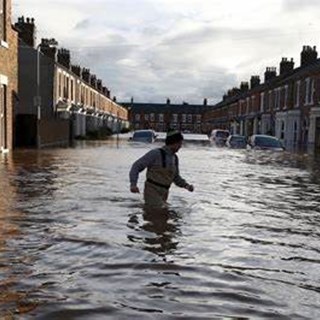
Defence and climate: taking a closer look
We explore how defence agencies and military organisations prepare to address climate change issues.
1 March 2022
The challenges of the 21st century are many and complex. Still, there is growing recognition that climate change is one of humankind’s most pressing issues, which is the first instalment in a short series of articles by BMT about Climate and Defence; exploring how Defence Agencies and Defence Forces around the world are preparing for and addressing climate change issues. Scroll down for other articles in the series.
Like all other industries and organisations, climate risk is starting to shape Defence Agency policy and Defence Force operations to address two fundamental questions:
However, these two factors must also be considered in the context of a third and broader implication of climate change: an increasingly operational role of Defence Forces in climate-related humanitarian aid and disaster response and recognition of climate change as a threat multiplier in national security in critical regions. As put forward in the UK’s Integrated Review (2021), there is a growing recognition that nations will need to address the ‘issues of security, multilateral governance collectively, tackling climate change and health risks, conflict resolution and poverty reduction as part of their commitment to global peace and stability.
Despite the crippling impacts of the COVID 19 pandemic, policy responses to climate change by Defence agencies across the world ratcheted up in 2021, with significant releases of climate action and response plans in the USA and UK as well as renewed commitments from NATO as part of their climate Change and Security Plan.
In June 2021, NATO leaders confirmed their shared political commitment to reduce defense emissions, labelling climate change, “a defining challenge of our times” and adopted an ambitious Climate Change and Security Action Plan to mainstream climate change considerations into NATO’s political and military agenda.
While each jurisdiction approaches these climate challenges uniquely or as part of broader sustainability and social values plan, there are some commonalities in approach forming.
Key initiatives and themes in terms of climate adaptation by Defence Agencies and Defence Forces include:
Key initiatives and themes related to decarbonisation for Defence Agencies and Defence Forces include:
Practical implementation of these climate risk and resilience strategies will be challenging and incremental, which has mainly been the case for Defence Forces in dealing with short-term resource and time pressures associated with the COVID pandemic and disaster response from extreme disasters and weather events; still, addressing the overarching imperative of maintaining security and operational military capability in an increasingly uncertain world must always be considered.
But we are seeing greater policy alignment between these crucial concepts forming, as indicated by the recently released US Department of Defence Climate Adaptation Plan (2021), which briefly notes:
The effects and costs [from extreme weather events] are likely to increase with climate change….but not adapting to climate change will be even more consequential with failure measured in terms of lost military capability.'
As part of a series of articles on Climate and Defence, BMT is taking a closer look to see how Defence Agencies and Defence Forces are approaching and addressing climate change risks and opportunities. This second article examines the situation in Australia and the broader Asia Pacific region.
As part of a series of articles on Climate and Defence, BMT is taking a closer look to see how Defence Agencies and Defence Forces are approaching and addressing climate change risks and opportunities; here, we examine the situation in the UK.
As part of a series of articles on Climate and Defence, BMT is taking a closer look to see how Defence Agencies and Defence Forces are approaching and addressing climate change risks and opportunities; here, we examine the situation in Canada.

Greg is a Senior Associate at BMT and leads the firm’s global campaign related to climate risk and resilience. Based in Brisbane, Australia, Greg has over 25 years of experience in natural hazard and climate change planning and adaptation studies with planning, transport, and conservation authorities.

Greg Fisk
The DCN spoke to our climate change risk, resilience and adaptation expert about preparing for the impacts of a changing climate.

N/A
Get ready to dive deep into maritime autonomy as we bring you technical experts, insightful opinions, and unmissable discussions.

Jake Rigby
We explore the core elements of the support framework required to ensure Persistent Operational Deployable Systems (PODS) can thrive.

N/A
With the UK and beyond facing unprecedented consequences from rising water levels and climate amelioration, BMT are helping our clients in their need for flood alleviation, prediction, mapping and mitigation. James While talks about 5 ways we can assist our clients.